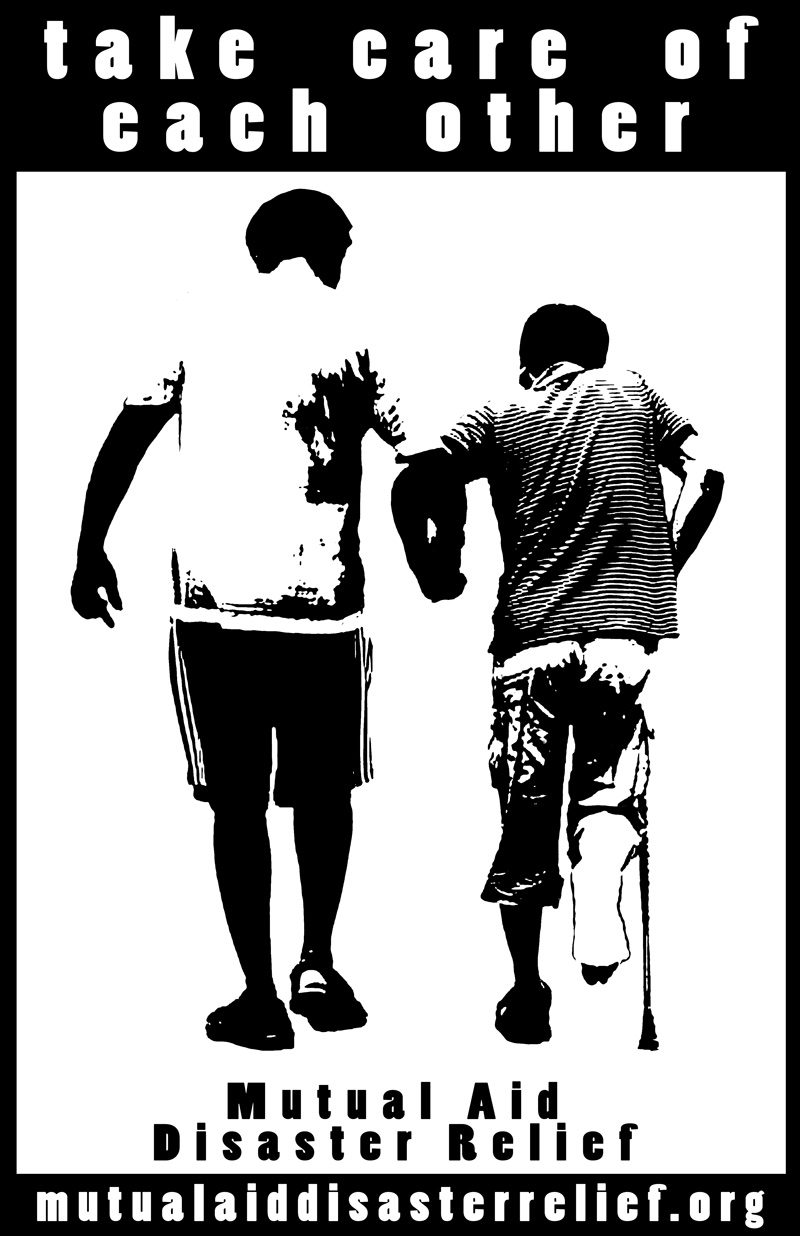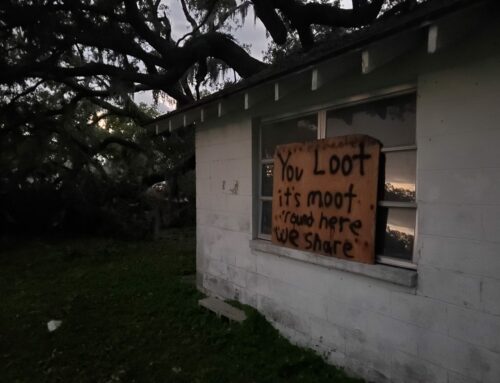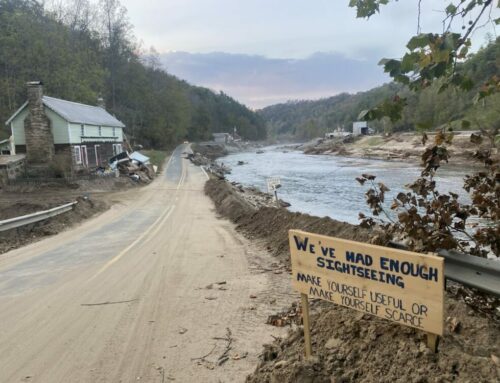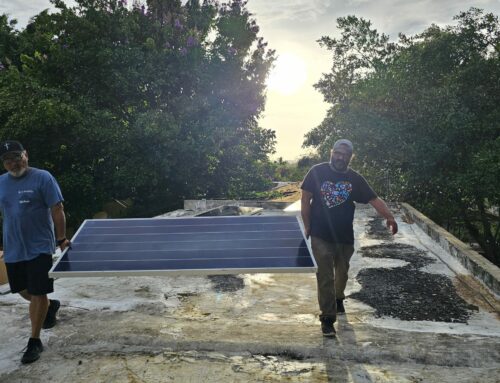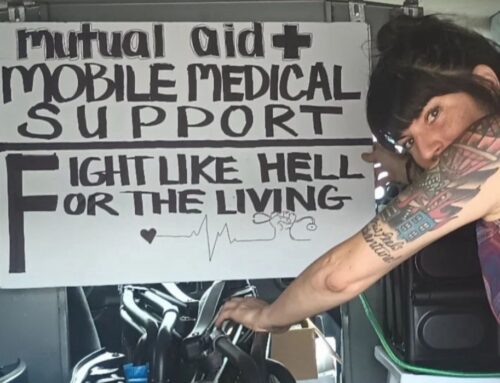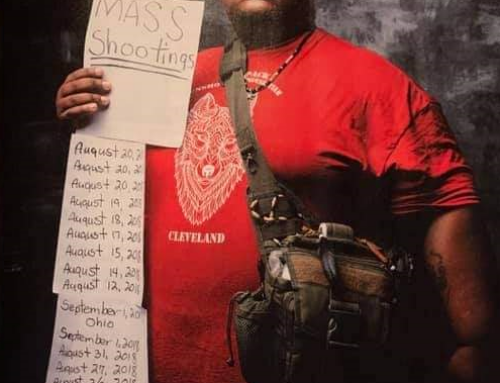Radical solidarity through Covid-19
Community mobilizations for mutual aid and medical solidarity have formed in as many spaces as the new coronavirus (Covid-19) has spread.
From continent to continent, people have innovated and navigated through information suppression, governmental inadequacy and unpreparedness as well as supply shortages in panic-economies with global financial markets plummeting.
The global pandemic is a disaster enveloping all of the intersections where climate catastrophes typically surge, storm-batter and strand impacted regions, but when every community is a different version of ground zero, sourcing from within, in as much as possible, becomes a critical component.
Piecing together carefully constructed information on defending our communities, building bridges over access and info gaps for folks with differing vulnerabilities and sharing comprehensive information on harm reduction, DIY resource building and responding with best practices is the radical solidarity being generated by folks across the world.
A compendium of this information below constructs this piece, every bit as much as it deconstructs the notion that the state will save us in a time of crisis.
As this piece is being written, so is a bailout package for industries whose profit-losses have pushed public safety to the back-burners in a time when we face desperate testing capability shortages, medical facility supply shortages, thousands of Covid-19 deaths and over 120,000 cases of infection worldwide.
Don’t panic. Organize.
A Just Coronavirus Response
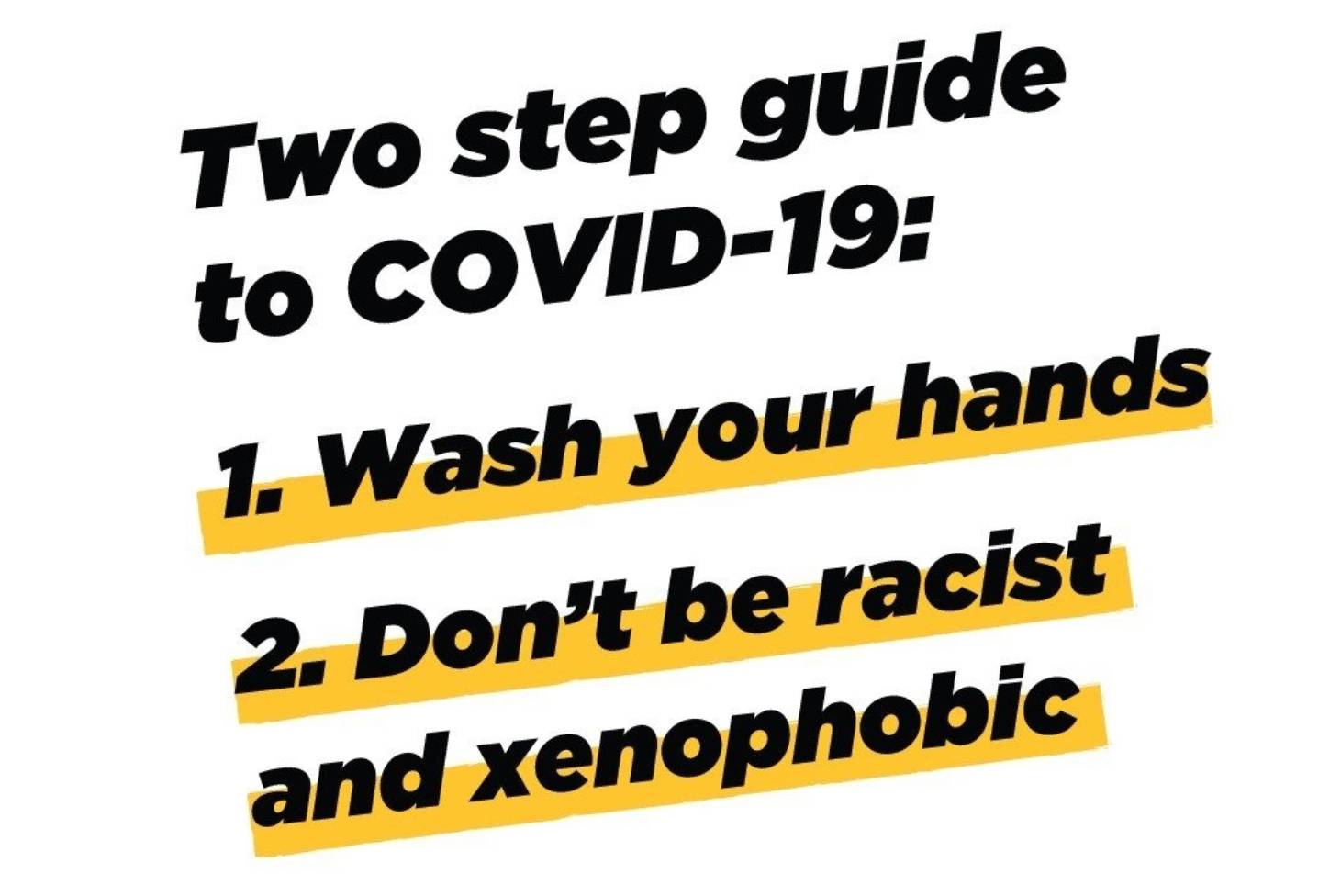
Just like in hurricanes, earthquakes, and wildfires, pandemics further marginalize historically marginalized groups. Just like during the beginning phases of HIV/AIDS, stigmatization and marginalization worsens public health outcomes. A just response to the coronavirus calls us to be vocal about rooting out anti-Asian racism and xenophobia, ensure access to health care, clean water and hygiene as basic human rights regardless of ability to pay, homelessness status, or other barriers.
When bosses (or poverty) force people to come into work sick, it highlights the necessity for a fundamental transformation of our economic system. In the meantime, access to child care may be difficult as schools are closing to prevent COVID19 spread and vulnerable communities could have difficulty accessing services if food pantries, government offices, and community organizations close. How can our movements step in, via direct action, to fill the need? One answer is documenting stories. The Asian American Feminist Collective has put out a community call seeking first-hand accounts of racism and xenophobia connected to the coronavirus.
With the virus clearly transmuted to a community spread illness, immigration courts across the country received a directive from the Trump administration to remove all coronavirus info-posters from their walls, with the mandate revoked later on the same day. These posters relayed critical information on symptom identification and infection control measures in English and Spanish. Through mobilizations from Hurricanes Irma to Maria to Matthew to Dorian and beyond, DHS and ICE, working in conjunction with many local and state law enforcement actors have increasingly and consistently used moments of disaster as a dragnet for status threatened and undocumented community members. These agencies have also continued to work on popularizing immigrant scapegoat narratives to legitimize nationalist, militarist border policies.
While others may attempt to comfort themselves with the idea that COVID-19 will only severely affect people who are immunocompromised, disabled, elderly, or with pre-existing conditions, we reject this ableist line of reasoning. Those people are us and those we love. There is a popular slogan that has been used in disability justice and solidarity-based disaster response circles – “Nothing about us, without us.” If you haven’t yet, read this excellent critique of mainstream COVID-19 discourse from a disability justice perspective. And check out A Chronic Illness Patient’s Guide to Coronavirus.
In addition to physical disabilities, prolonged social isolation will also adversely impact people with mental health vulnerabilities. Checking in, emotional first aid, and peer support, even if done remotely, will be more important than ever.
In these times we must also remember our incarcerated friends and loved ones. Prisoners are currently being forced to work for little to no pay to make masks and hand sanitizer. At the same time, prisons, jails, detention centers, and juvies are already incubators of disease and widespread medical neglect, and it is our responsibility to advocate for incarcerated people, who are disproportionately chronically-ill and lack access to proper medical care or hygiene products. Please support this coronavirus phone zap from our friends at Fight Toxic Prisons. For more background on the legacy of abuse, exploitation, and endangerment of prisoners in disasters, click here.
We’ve signed on to these demands from grassroots organizers regarding COVID-19, and suggest your collective or group do as well. For just a peek, here are a couple that stood out to us:
- We demand free testing for anyone who is being told by a clinician that they should be tested. Tests have been in short supply in the US. We find this inexcusable, given that other countries have managed to mobilize mass testing. The government’s failure to provide and administer tests means that, at this point, we have no idea how many cases actually exist in the US or how far the illness may have spread. Doctors in affected areas have complained that they have no tests to administer or that health officials have not allowed them to administer tests for COVID-19. This is a disastrous failure on the part of the Trump administration and must be addressed immediately. We need reliable tests that are readily available to clinicians and administered at no charge.
- We demand free care for those who test positive to ensure that those who are uninsured receive care and participate in measures that help slow the spread of the virus.
- We demand financial and material assistance plans for people who are expected to refrain from working. It is not realistic to tell people not to leave their homes if failing to do so means they will lose their homes or go without food or medicine. Containment must be made accessible.
- We demand a moratorium on ICE deportations to ensure that undocumented people are not discouraged from seeking treatment or testing.
- We demand a safety plan that addresses the needs of disabled people in the U.S. who may be affected by the virus. Disabled people have often been left behind in times of crisis. We consider that outcome unacceptable. Disabled people must also have a voice in determining what measures will be taken to help ensure their survival.
- The federal government must honor its legal obligations to Native people by providing necessary medical personnel on reservations in order to combat this crisis. Indigenous people have suffered terribly during previous pandemics because they have been treated as disposable by government officials and the public at large. We must not allow those histories to repeat themselves.
Click here for the full list of demands.
COVID-19 Mutual Aid
With the most basic necessities people need to stay healthy (and in some cases, alive) either in short supply, inadequate or lacking altogether, as well as a flood of confusing, contradictory and suppressive information from those in positions of power, those who stand to be most impacted have been left to sift through a veritable mountain of CDC and state-delivered directives which are non inclusive and inapplicable to many.
For folks using substances during this pandemic, comprehensive information on reducing harm has been explicitly absent from the global dialogue on public health. The Virginia Harm Reduction Coalition has released this excellent information sheet to fill in these potentially deadly gaps.
Crimethinc said recently, “Rather than struggling to manage the increasingly drastic consequences of this social order on an individual basis, let’s come together to confront them on our own terms. Together, we can resist and survive.” We couldn’t agree more. People from all around the world are not waiting on the government or other authorities, but instead discovering ways to take care of each other as the coronavirus crisis deepens. Here is a list of immunocompromised people requesting assistance and a growing resource of folks who have signed on to respond to people’s needs.
From Washington to Washington, DC, from Grand Rapids and the Huron Valley to Chicago, from Tacoma to Philadelphia, from Minnesota to Massachusetts, from Oakland to New York City — people are organizing #covid19mutualaid efforts. Students and childcare workers are organizing mutual aid efforts. Workers whose livelihoods are being affected by the coronavirus are creating pathways for mutual aid. These inspiring, spontaneous, autonomous efforts are only the tip of the iceberg. It’s Going Down has an even more comprehensive and growing list of coronavirus mutual aid efforts here.
For how to guides on how to set up similar initiatives in your community, click here, here, and here. Then let folks know about your coronavirus mutual aid efforts here, here, with the hashtag #covid19mutualaid or email your mutual aid project to: [email protected]
Looking for peer support? Here is a space dedicated for people who are disabled and/or immunocompromised to discuss preparation and support. Other COVID-19 groups have popped up online like People’s Coronavirus Response.
There are a number of really great online resource hubs. Herbalista Free Clinic has a Covid-19 Community Care Guide. Other great, comprehensive, and ever-evolving coronavirus resources include the COVID-19 Mutual Aid and Advocacy Resources and the Coronavirus Resource Kit. Prefer to get info via podcasts? Check out Coronavirus: Wisdom from a Social Justice Lens and What to do When the World’s on Fire.
With all the opportunities above to address people’s needs immediately and directly, we encourage people with access to wealth to support impacted people directly if able. And if you cannot for whatever reason, or want to help us purchase needed supplies in bulk, consider supporting our Mutual Aid Disaster Relief coronavirus response fund.
Symptoms, Getting Sick and Staying Safe

Symptoms can range from mild cold symptoms; cough and fever to shortness of breath with exacerbation leading to pneumonia with even more severe complications for at-risk groups. The percentage of people who die from COVID-19 hovers around 2% of all cases. Morbidity is elevated in the first weeks when the virus spreads to a community, as people don’t have access to treatment and doctors aren’t familiar with the risks. Competent information, and access to early treatment drastically reduces the morbidity rate even in every group.
HOW IT SPREADS: Right now, COVID-19 is believed to spread through droplet (coughing, contact with bodily fluids of someone with the virus), but some research indicates that it may be airborne. The virus can live on surfaces for short periods of time.
WHO IS MOST AT RISK: People over 60, people with chronic respiratory or heart problems, and people with compromised immune systems.
TREATMENT: There are currently no medications or vaccines that eradicate the virus. The current strategy that’s being used by healthcare providers is to alleviate the most severe symptoms while the patient’s immune system fights off the virus. People who recover completely are typically immune to that particular strain of COVID-19, but it’s possible to contract other mutations of coronavirus.
WHEN TO SEEK MEDICAL CARE: Estimates are that 80% of cases will recover without requiring hospitalization. The overwhelming majority will respond to rest, drinking plenty of fluids, herbal remedies to boost the immune system (if immunity boosting isn’t contraindicated by a pre-existing autoimmune disorder or if you are taking immunosuppressants), and tylenol/motrin. But if you or someone you are caring for have significant shortness of breath or experience severe lethargy, then you should consider seeking medical treatment. Call a doctor or hospital, if in doubt.
Further Info and Research
Here is a link to Elsevier’s Novel Coronavirus Information Center. Here you will find expert, curated information for the research and health community on Novel Coronavirus (also referred to as COVID-19 and its temporary title 2019-nCoV). All resources are free to access and include guidelines for clinicians and patients. Under the ‘Research’ tab you will find the latest early stage and peer-reviewed research from journals including The Lancet and Cell Press, as well as a link to the Coronavirus hub on ScienceDirect, where you will find every article relevant to Coronavirus, SARS, and MERS freely available. Under the Clinical information tab you will find resources for nurses, clinicians and patients, including FAQs on symptoms and a CDC webinar on what clinicians need to know to prepare for COVID-19 in the United States. Here is a link to the CDC Coronavirus Disease 2019 (COVID-19) Situation Summary – updated regularly for the lastest from the CDC. Flatten the Curve is another great comprehensive resource. To keep track of the cases of COVID-19, here is the Johns Hopkins Live Map and the NCoV2019.Live Dashboard.
Mutual Aid Is The Future
Fluidity and consistently vetting information as it comes out is critical during this crisis. The decentralized work of data review, resource building, working to severely limit the risks of transmission, providing support for those self-quarantining and those whose vulnerabilities put them at higher risk and disproportionate impact from Covid-19 as well as organizing mutual aid efforts to contribute to the self-determination and survival of our communities across the world continues.
Many in positions of power are consistently doing the work of delegitimizing their own positions and the state’s response to this crisis. The political and cultural sphere has been rife with the specters of xenophobia, racism, and ableism. Inclusionary public health information, gradually proliferating online is an antidote and critical to our community safety and public health. While people in the highest places of government have downplayed the crisis and ignored the needs of the people, it is in these conditions where there have emerged community sourced online sign-ups to deliver supplies to immunocompromised persons, street level organizing in neighborhoods across the globe providing medical support, food and water distribution to neighbors with various vulnerabilities, resource and information-gathering and vetting of the copious levels of incoming data from day to day to help support the health of our communities as we face the new and strange ways that a global disaster can stunt the system and leave catastrophe threatened and impacted communities to fend for ourselves and each other.
Mutual aid networks have formed and grown to keep us as safe and cared for in perilous times.
Radical solidarity in every corner of the world continues a compassionate and informed Covid-19 response to build access and resources for all people in all places.
#mutualaid #WeKeepUsSafe #covid19mutualaid
